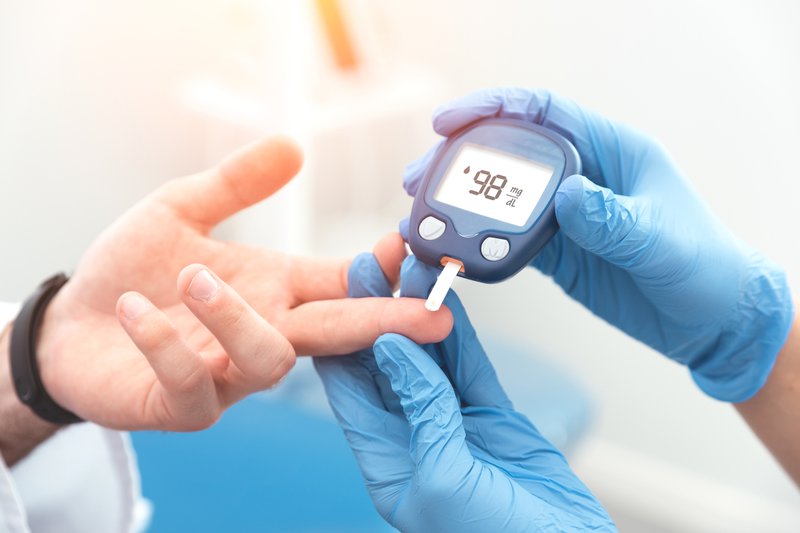Tips for managing diabetes during the coronavirus pandemic
Updated | By Lifestyle Reporter
Uncontrolled diabetes makes the fight against COVID-19 that much harder. Here is how you can ensure that the chronic disease is well managed.

What happens when COVID-19 brings in-person visits with your doctor or healthcare practitioner to a halt? The effect on chronic disease management, either postponed or cancelled, can be serious for people with pre-existing medical conditions such as diabetes, heart disease, and asthma, as they are more vulnerable to becoming severely ill with the COVID-19 virus.
The duration of lockdown has been shown to be directly proportional to the worsening of blood sugar control and diabetes-related complications. The evidence shows that poor blood sugar control and presence of organ dysfunction predisposes a person infected with COVID-19 to far greater risk of death than those without. That’s why it is extremely important to achieve, as well as maintain, good blood sugar control during this pandemic.
READ: World Diabetes Day: The South African celebrities who suffer from diabetes
Tips for managing diabetes during the pandemic
Continue taking your diabetes medicines and insulin as usual.
Test your blood sugar and keep track of the results, as directed by your healthcare provider.
Make sure that you have at least a 30-day supply of your diabetes medicines, including insulin.
Follow your healthcare provider’s instructions if you are feeling ill.
Call your healthcare provider if you have concerns about your condition or feel sick.
If you don’t have a healthcare provider, contact your nearest community health centre or GP practice.
What are some of the known increased risks for people with diabetes?
“People living with diabetes are at an increased risk of a more severe illness if they contract COVID-19 and two recent studies from the UK have reported that the risk of in-hospital death is higher when the diabetes is less well controlled, and their HBA1c test result (a measure of blood sugar levels) is greater than 7.5%,” says Dr Zane Stevens, specialist physician and endocrinologist at the Christiaan Barnard Memorial Hospital in Cape Town. “This is most likely because high sugar levels weaken the immune system which is then damaged further by the coronavirus. People with diabetes often have circulatory problems too, while those who are obese or overweight may experience an exaggerated inflammatory response, or swelling of the tissues, which also has serious implications for the patient.”
According to Dr Daksha Jivan, a physician and endocrinologist at the Charlotte Maxeke Johannesburg Academic Hospital, the complications for patients with diabetes who test positive for COVID-19 can be extremely serious. “They can include coma resulting from very high blood sugar, more severe respiratory illness and pneumonia, disturbance of bodily functions, multi-organ failure, as well as heart attacks, strokes, and pulmonary embolism. There is a four-fold increased likelihood that diabetics will need ICU admission and ventilation if they test positive for coronavirus.”
READ: COVID-19 positive diabetics urged to make healthier choices
Dr Jivan says that there is a vicious cycle at play: “The virus causes higher blood sugar and higher blood sugar worsens the body’s immune response.”
Keeping safe during the pandemic – there are positive things you can do!
Like any other respiratory disease, COVID-19 is spread through air-droplets that are dispersed when an infected person talks, sneezes or coughs. The virus can survive from a few hours up to a few days depending on the environmental conditions. It can be spread through close contact with an infected person or by contact with air droplets in the environment (on a surface for example) and then touching the mouth or nose, which is why hand hygiene and social distancing are so important.
“General safety measures such as isolation, hand washing, and wearing masks is even more important for people with diabetes due to their higher risk of severe disease and death,” says Dr Jivan.
“It’s also important to note that a healthy diet can help lower high blood sugar levels. Avoid sugars and refined carbohydrates, exercise regularly and avoid alcohol and smoking. We urge patients to adhere to their medication schedule, continue home glucose monitoring, have routine blood tests done, and always keep a month’s worth of medication at hand,” says Dr Jivan.
According to Dr Stevens, some people are experiencing financial difficulties and are not buying their medication, while others are avoiding going to the doctor or having tests because they are afraid of medical environments which are typically associated with the pandemic.
“Because of their increased risk, we are urging people with diabetes to make sure that they manage their sugar levels and take their medication as prescribed. If they are hesitant to visit their healthcare practitioner, it is also possible to have a virtual consultation, over the phone or via video. The pandemic has taught us that face-to-face consultations can be augmented by interim telehealth consultations, and that good communication can go a long way towards helping patents manage chronic diseases like diabetes,” says Dr Stevens.
Diabetes is a manageable condition and good adherence to treatment and contact with your healthcare provider can make a big difference during the pandemic. Be proactive and take your medication!
For further information, download the “Diabetes Words” App for free from Apple or Google Play. This new, convenient, companion application for both patients with type 2 diabetes and caregivers, provides access to valuable information to better understand, thanks to simple words, what diabetes is and therefore help sufferers to live a better quality of life with it.
READ: The link between coronavirus and diabetes
Image courtesy of iStock/ @simpson33
Article courtesy of Mantis Communications
Show's Stories
-
WATCH: SA principal’s viral April Fools' prank on Grade 12s
This principal pulled the ultimate April Fools’ prank on his matrics.
Stacey & J Sbu 12 hours ago -
Kasi gents try sushi for the first time
It seems "life was not better with a side of wasabi and soy sauce" for t...
Danny Guselli 16 hours ago